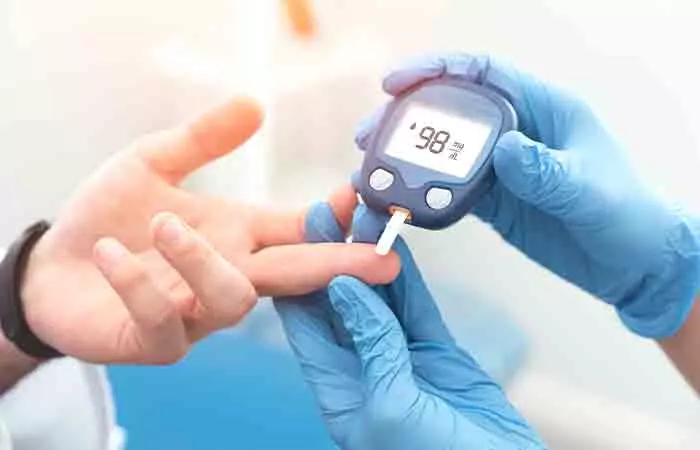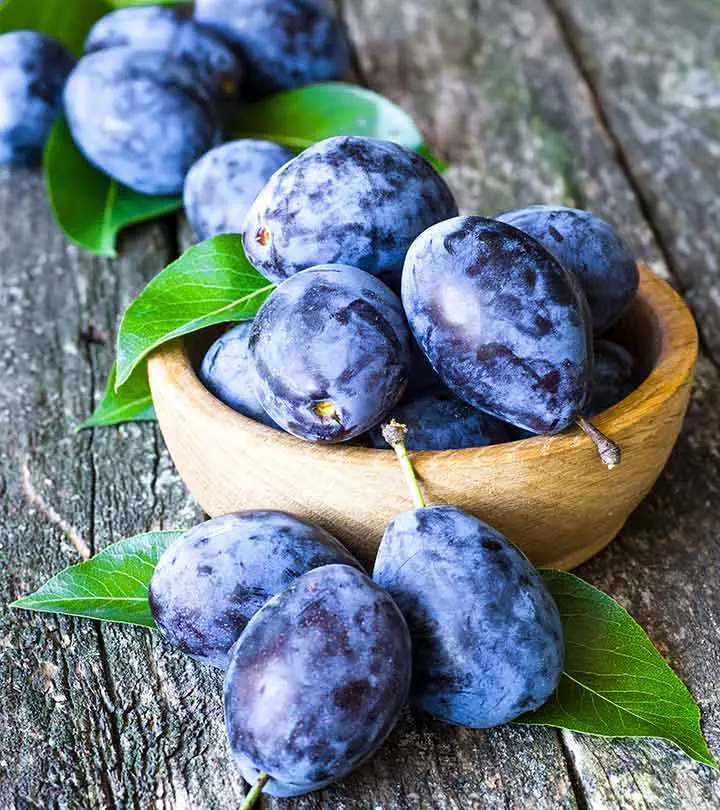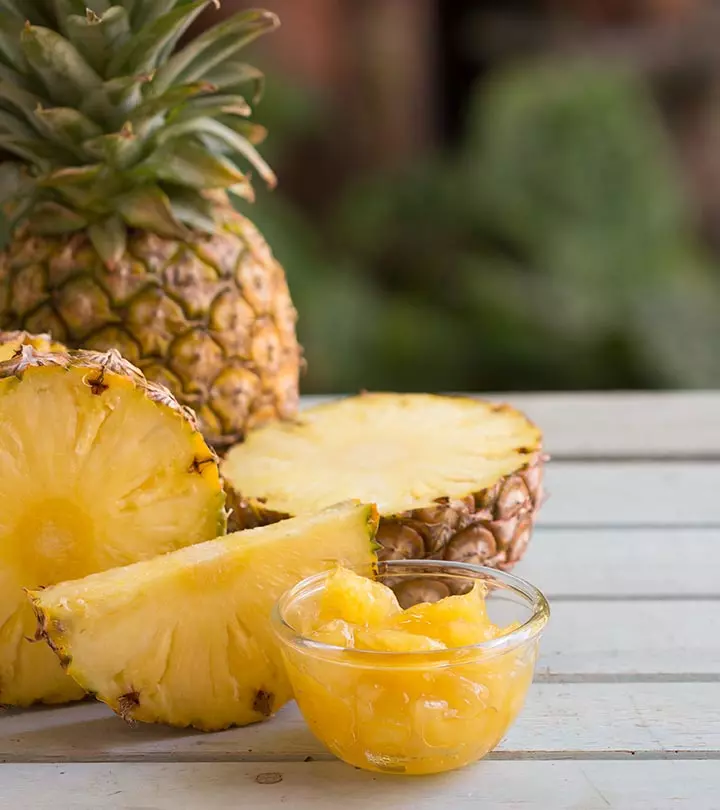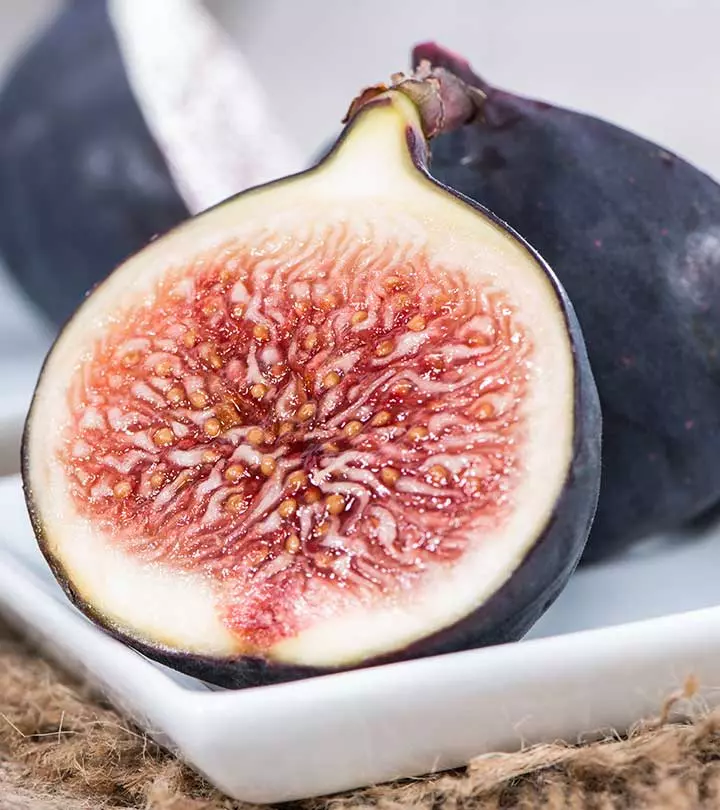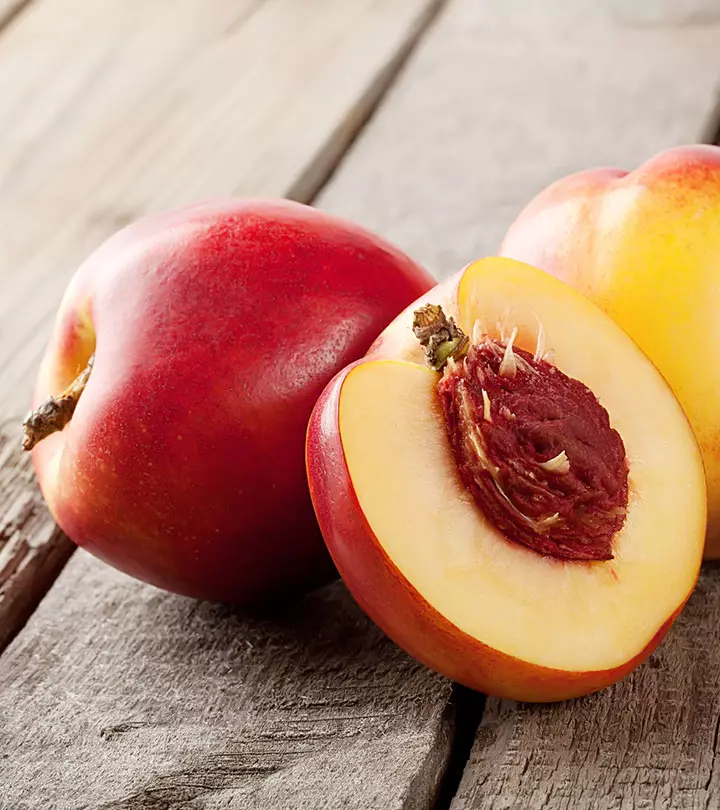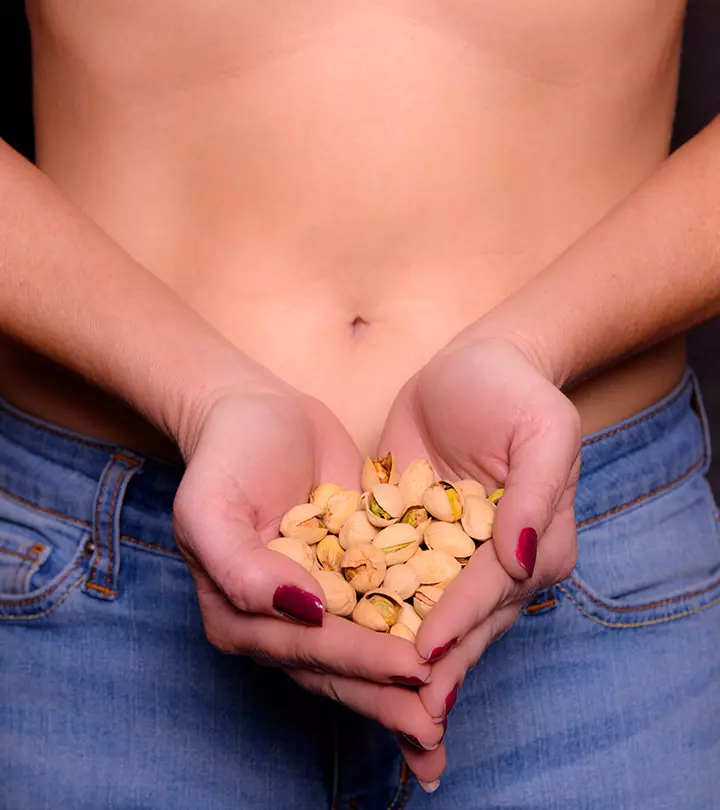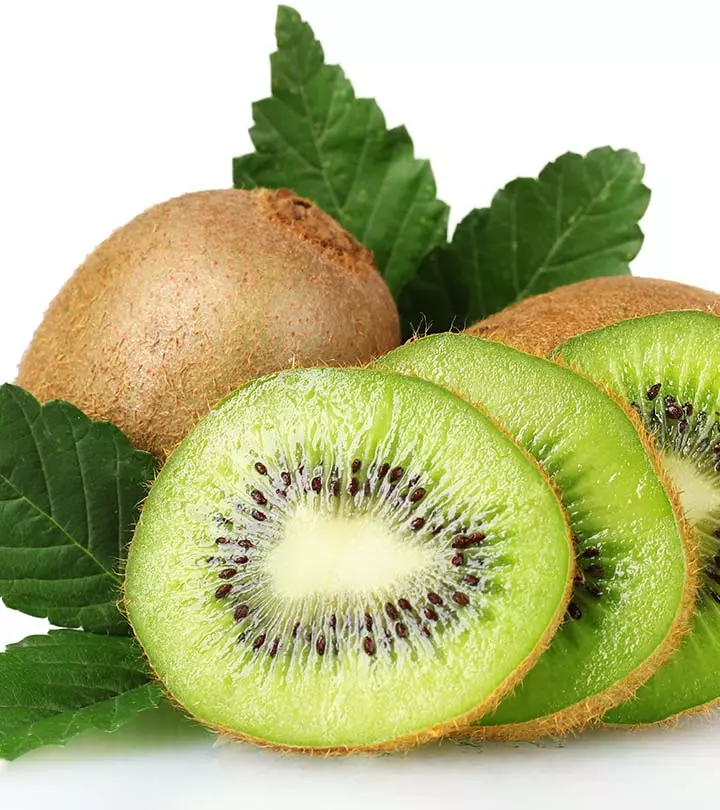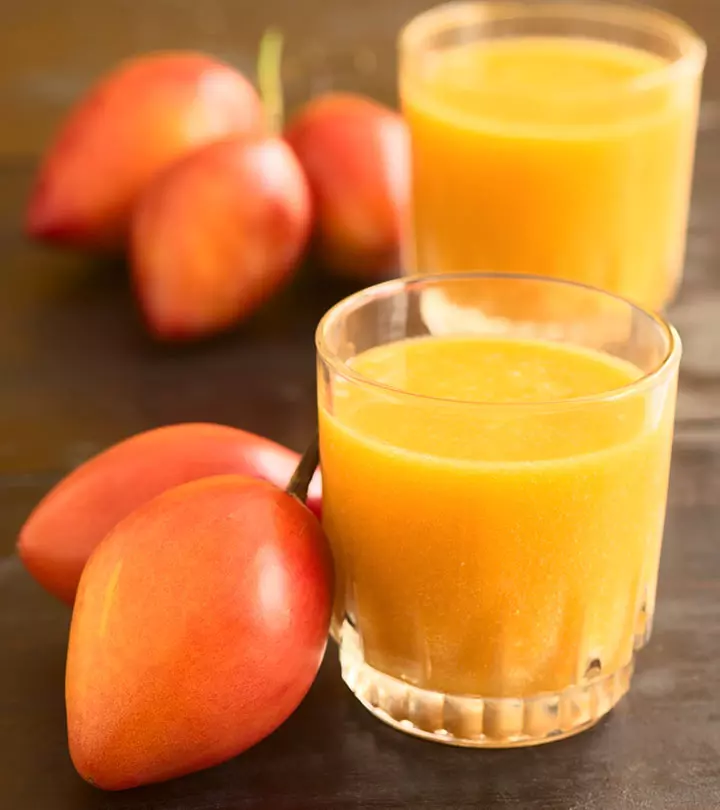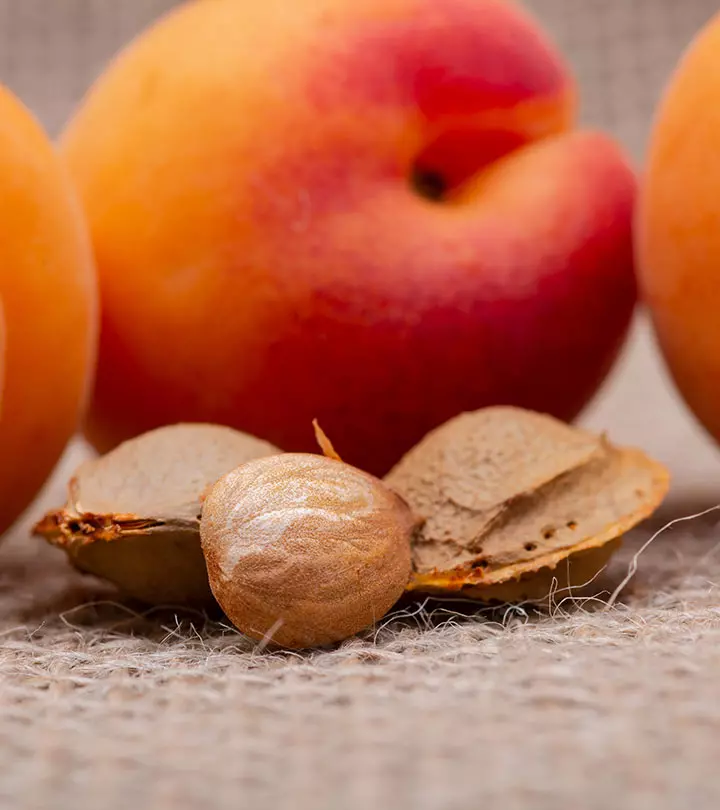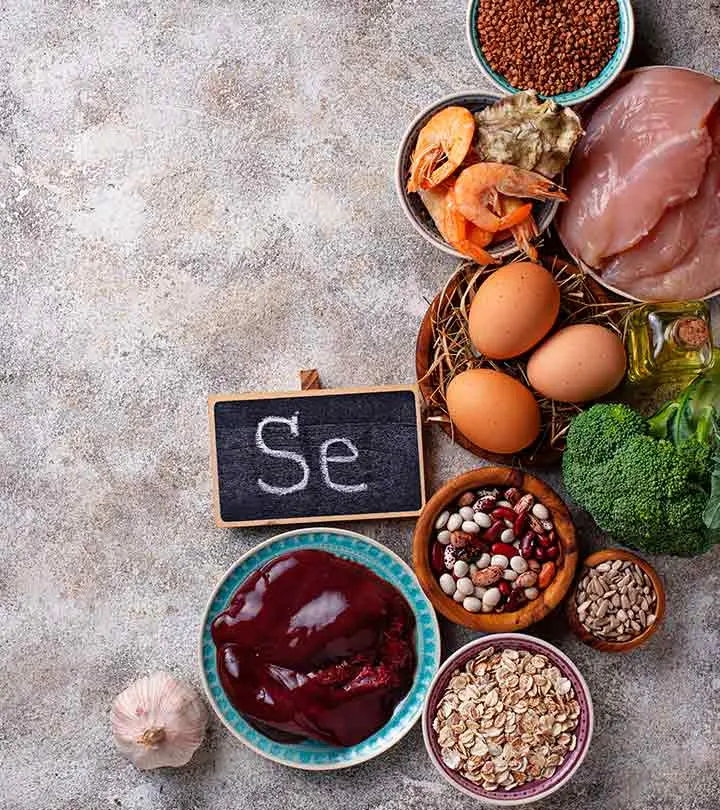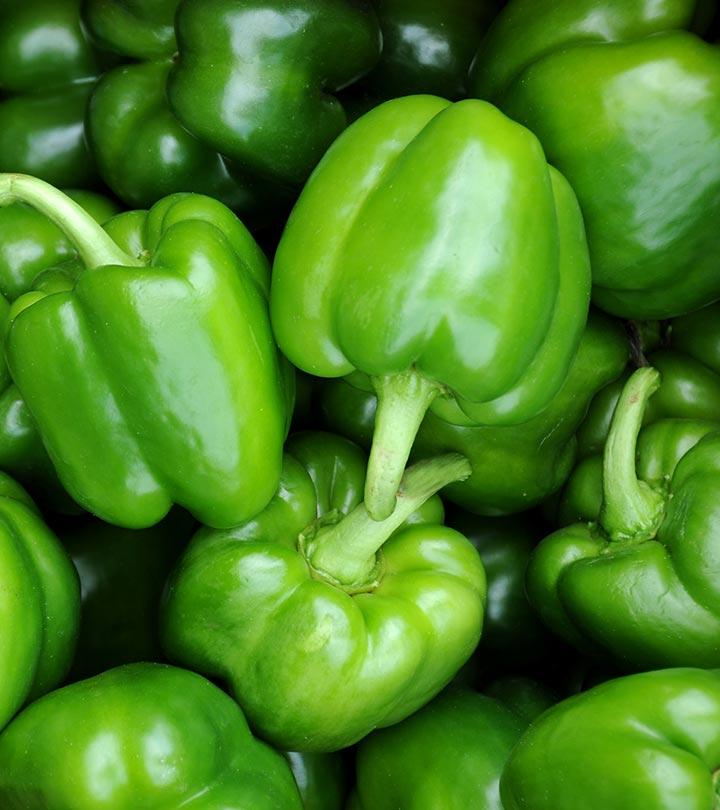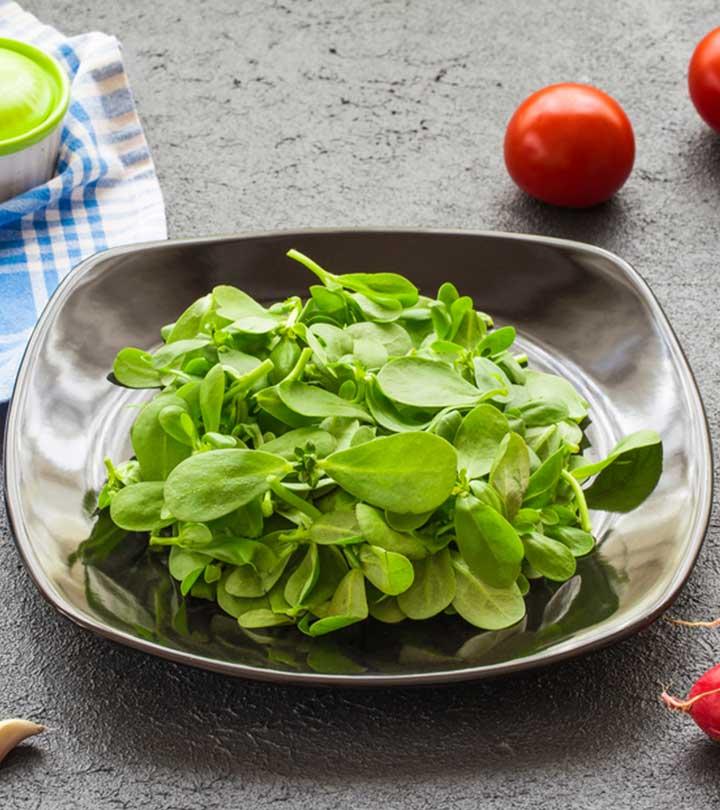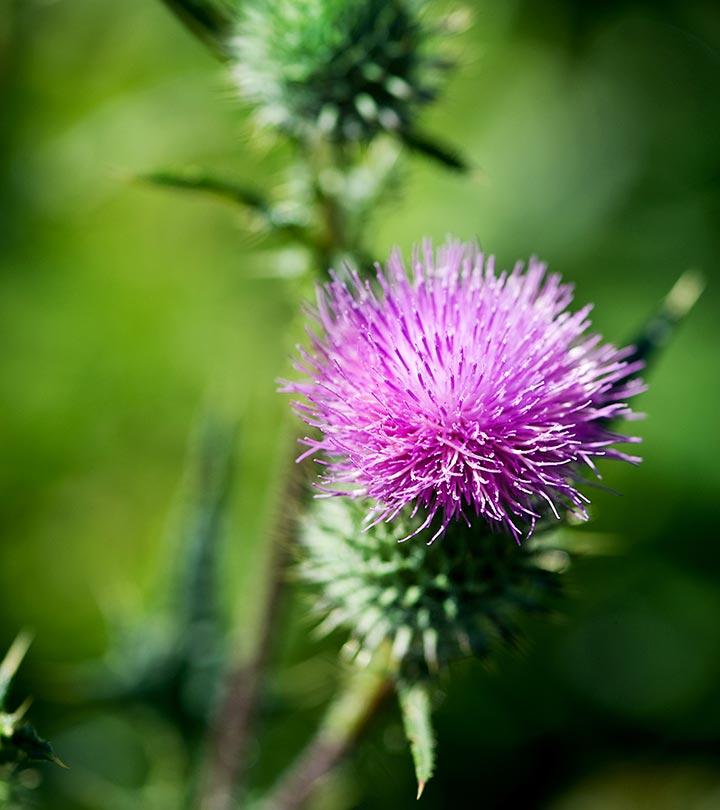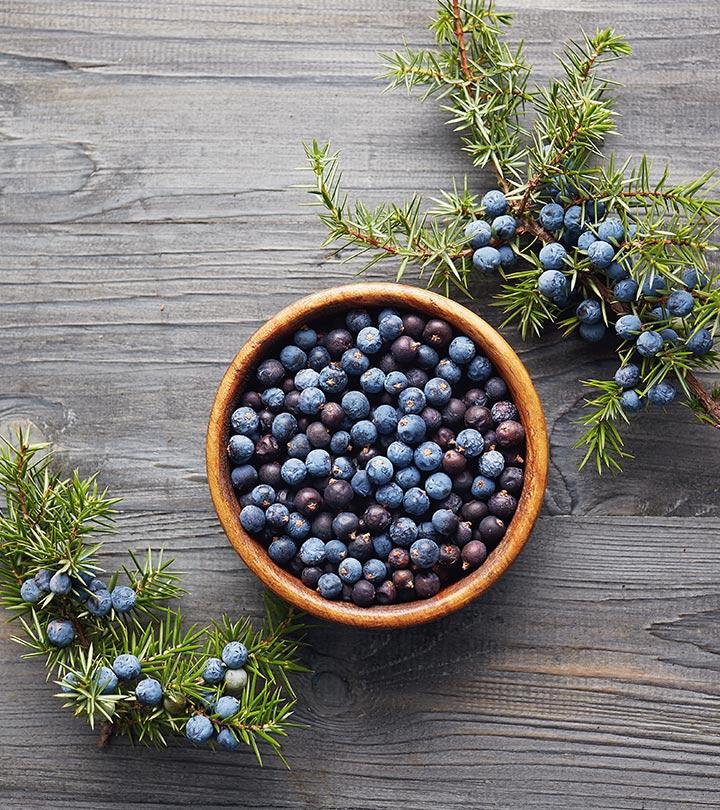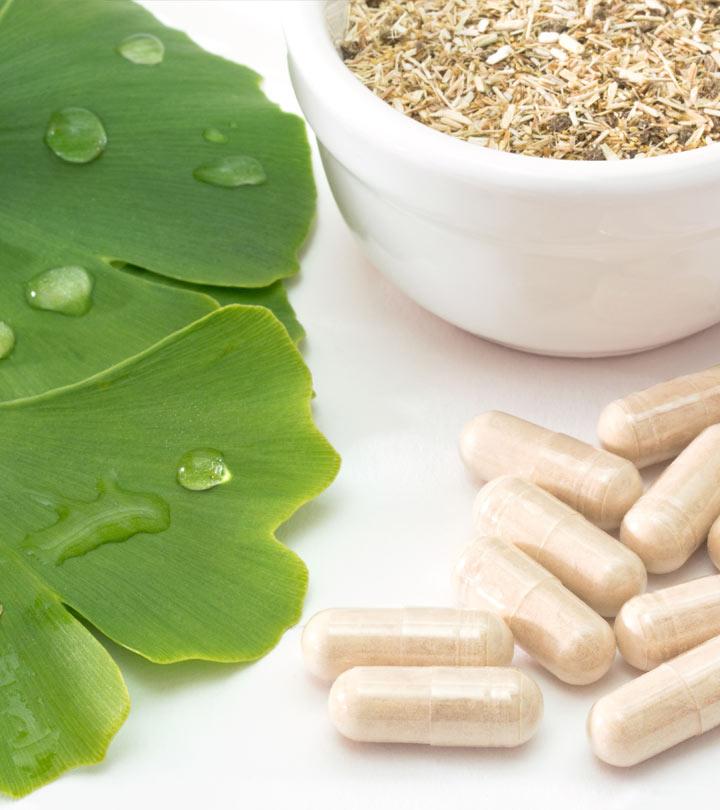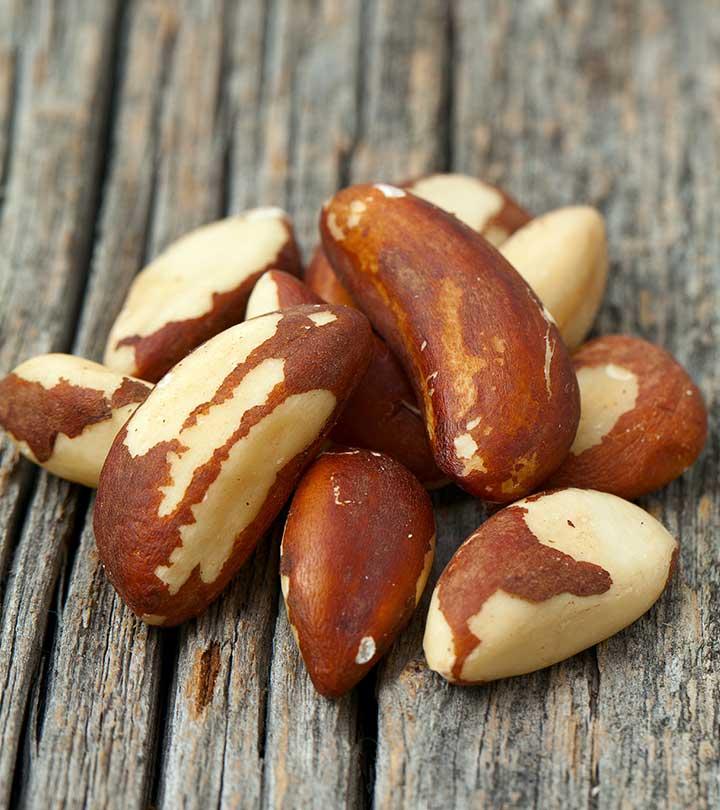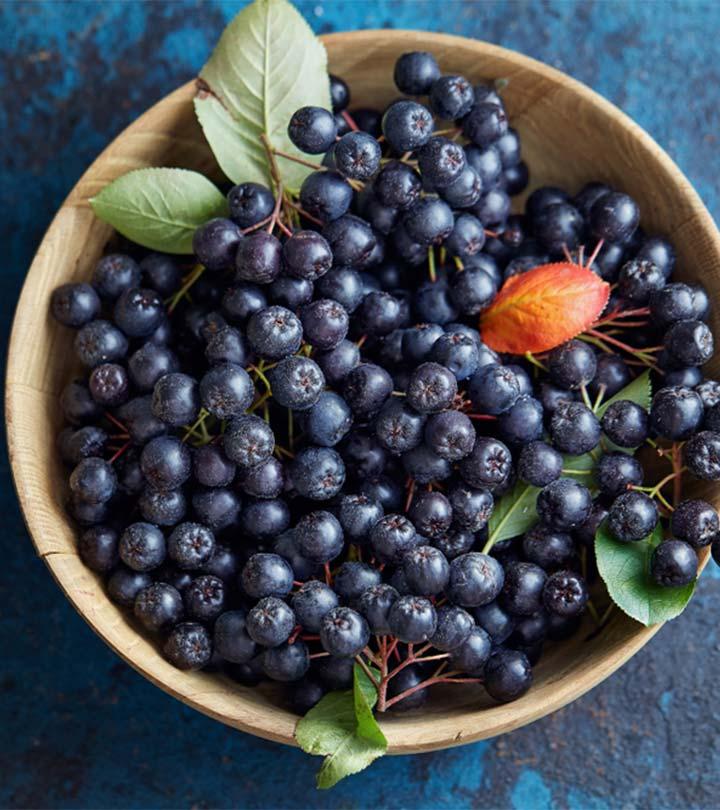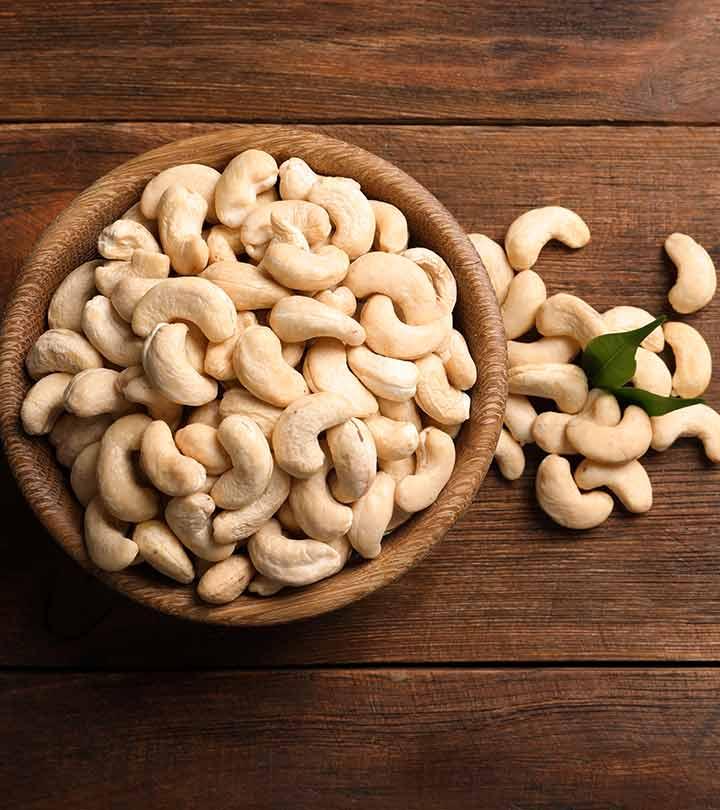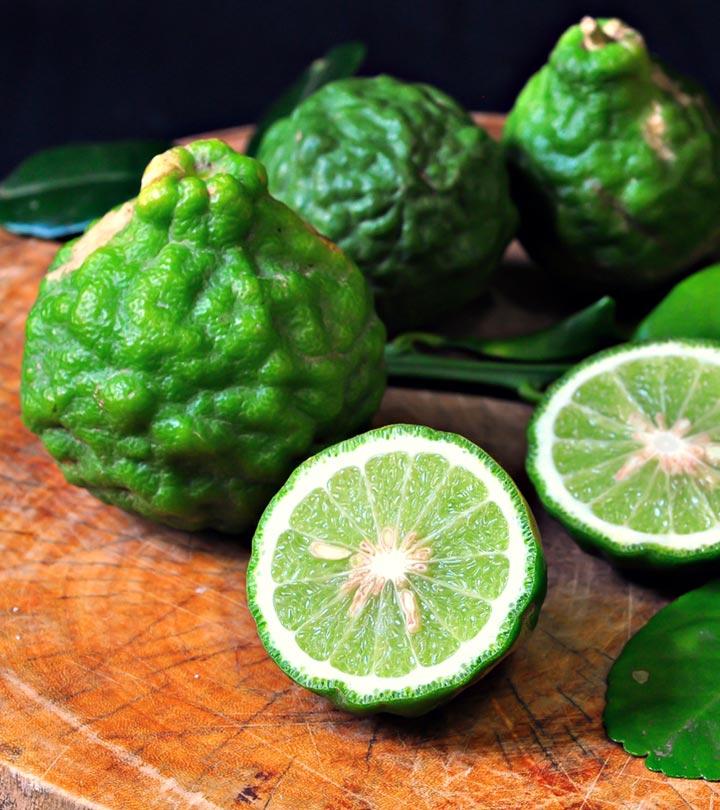9 Health Benefits Of Dried Apricots & How Many To Eat In A Day
This juicy fruit packed with rich nutrients can work wonders for your health in the long run.
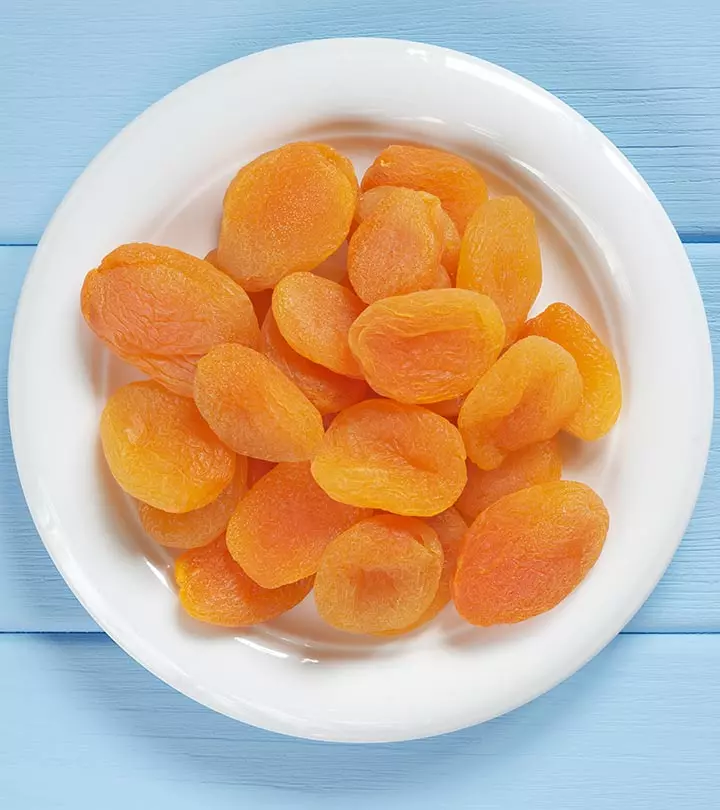
Image: Shutterstock
The benefits of dried apricots are well-documented and range from helping manage diabetes to reducing inflammation. A dry apricot is as nutritious as fresh apricots, minus the water content (1).
They contain iron, fiber, potassium, and vitamins A, C, and E. Moreover, they are a rich source of energy. One cup of these dried fruits can provide you with 313 calories (2)!
The high fiber content of dried apricots plays a big role in easing constipation. They also boost your eye health, thanks to the presence of antioxidants like zeaxanthin and lutein. This article explores the benefits of these nutritious fruits and their recommended daily intake. Read on!
 Know Your Ingredient: Dried Apricots
Know Your Ingredient: Dried ApricotsWhat Is It?
It is the dehydrated or dried version of an apricot that has little to no water content.
What Are Its Benefits?
It may help to improve digestion, regulate blood sugar levels, and support a healthy immune system.
Who Can Use It?
Those looking for nutritious healthy snacks, to improve bone and eye health, or to lose weight, pregnant or nursing mothers, and people with anemia, diabetes, and digestive issues.
How Often?
Consuming half a cup of dried apricots twice a day is recommended.
Caution
Those with diabetes and high blood pressure or people taking medications like antibiotics should avoid consuming excess dried apricots.
In This Article
What Are The Benefits Of Having Dried Apricots?
Dried apricots are rich in important nutrients, including fiber, potassium, iron, and vitamin C. Some research shows that they may be of help during pregnancy. If consumed in moderation, dried apricots, like most dried fruits, may also help supplement your weight loss efforts.
1. Are Rich In Nutrients
Dried apricots are rich in vital nutrients. They are replete with potassium, fiber, and several other nutrients.
A hundred grams of dried apricots (or about 30 dried apricot halves) contains the following (2):
- 241 calories
- 4 g of protein
- 5 g of fat
- 63 g of carbohydrates
- 3 g of fiber
- 1160 mg of potassium
- 55 mg of calcium
- 3 mg of iron
- 32 mg of magnesium
- 71 mg of phosphorus
- 2 mcg of selenium
- 180 mcg of vitamin A
- 1 mg of vitamin C
- 10 mcg of folate
Apricots of different cultivars contain varying amounts of polyphenolici Compounds naturally present in plants, which are rich in antioxidants that help them resist bacterial and fungal infections. compounds. These commonly contain gallic acid, rutin, epicatechin, ferulic acid, p-coumaric acid, catechin, procyanidins, caffeic acid, epigallocatechin, and chlorogenic acid (3).
2. May Help With Weight Loss When Taken In Moderation
As discussed, dried apricots are high in calories. But they also contain fiber, and consuming them in moderation may help with your weight loss plans.
Six dried apricots (40 grams) contain about 10 grams of total fiber (4).
In a cross-sectional study, a lower intake of fresh whole and dried fruits was associated with a higher BMI in subjects. Some research also suggests that both fresh and dried fruits can help reduce hunger, increase meal satisfaction, and decrease energy intake when taken as snacks or along with meals (4).
Dried apricots are healthy, and their high fiber content may complement your weight loss diet. But there is no research linking dried apricots directly to weight loss. Hence, practice moderation and consult a registered dietitian.
3. May Be Beneficial During Pregnancy
This dried fruit contains iron that may help improve blood health.
A woman’s blood volume increases by 50 percent during pregnancy. This means she would need more iron in her diet. Dried apricots are a good source of iron and may help in this regard (5).
Pregnancy and lactation may cause metabolic changes in your body. Too little exercise or an unbalanced diet can often lead to constipation. Drinking enough water and consuming fiber-rich foods, like dried apricots, may relieve digestive issues (6).
4. May Help Treat Anemia
The iron in apricots could help in the treatment of anemia.
In anemia, your blood lacks an adequate supply of healthy red blood cells (RBCs). This occurs due to a deficiency of hemoglobin (the oxygen-carrying molecule in the blood). Hemoglobin shortage occurs due to iron deficiency (7).
Severe blood loss, chronic bleeding in the stomach, and chronic inflammation may also cause anemia. Pregnant and menstruating women are at a higher risk of anemia (8).
In a survey it was found that around 25% of people globally have anemia. Iron deficiency is the most common cause of anemia and accounts for 50% of all cases. Iron deficiency is prevalent in developing countries, but in men under 50 years old in the United States, the rate is just 1%. However, low-income households in the US are particularly at risk. Women of childbearing age in the US have a higher rate of 10% due to losses from menstruation, while 9% of children ages 12 to 36 months are iron-deficient.
Consuming iron-rich foods is the best way to reverse anemia. Dried apricots are very good sources of iron. Also, the vitamin C they contain further enhances iron absorption (9).
However, you may not be able to meet your daily iron intake through dried apricots alone. A cup of dried apricot halves contains about 3.5 milligrams of iron (2). You may have to consume 10 such cups to meet your daily iron intake. Hence, we suggest you also include other sources of iron in your diet, like spinach, lentils, and beans.
5. May Help Relieve Constipation
The fiber in dried apricots may play a role here.
Dietary fiber increases stool bulk and accelerates its movement through the colon (10).
When fiber is fermented in the intestine, it produces short-chain fatty acids (butyrate, propionate, acetate, etc.). These alter the gut microbiome (microorganisms) by decreasing the luminal pH. This further improves stool consistency, quantity, and mobility, thereby treating constipation (10).
Dried apricots contain fiber and can aid in constipation treatment (11).
6. May Aid Diabetes Treatment
Dried fruits, like apricots, have a low glycemic index. As per studies, they would not increase blood glucose levels excessively (12).
Moderate amounts of fructose from dried fruits (including dried apricots) may also help control postprandial glucose levels (12).
Dried apricots were also found to have beneficial effects on insulin levels (13).
7. May Promote Eye Health
The lutein and zeaxanthin in dried apricots may contribute to eye health. These nutrients function as blue light filters and protect the ophthalmic tissues from phototoxici A toxic response of the skin when exposed to certain chemical substances, or radiations like the UV rays of the sun. damage (14). They may also lower the risk of cataracts (14).
8. May Improve Bone Mineral Density
Low bone mineral density is common in aging and post-menopausal women. It is the leading cause of osteoporosisi A condition in which bones become weak and brittle and more prone to fractures due to low bone mass and mineral density. , osteoarthritisi The most common form of arthritis that affects flexible tissues at the end of the joints and causes pain. , and other similar bone disorders (15). The boron in dried apricots may help improve bone mineral density.
In studies, postmenopausal women who took 3 to 4 mg of boron a day for a year showed an improvement in bone mineral density (15).
9. May Protect Your Skin From Damage And Aging Effects
Apricots contain beta-carotene, which gets converted to vitamin A in your body. Dried apricots also naturally contain a ton of vitamin A (retinol). This vitamin plays a role in skin health (16).
 Trivia
TriviaNow you know about the various apricot benefits but as is the case with any other food, there is a limit to the number of apricot dry fruits you can eat in a day.
How Many Dried Apricots Can You Eat In A Day?
According to the U.S. Department of Agriculture, we need to consume about 1 to 2 cups of fruit every day. Those who are more active may need more (17).
When it comes to dried fruits, half a cup of them counts as a cup of fruit (17). Though there is no information about the dosage of dried apricots, you may have a cup of them in a day.
The best time to eat dried apricots is early morning on an empty stomach. Nilofar Pendhari, a registered clinical nutritionist, says, “It is a good source of potassium and magnesium, which have a calming effect.” She adds, “Soaking dried apricots overnight helps remove sulfites used to preserve them. Soak them overnight or for at least 4-5 hours in warm water.”
There is less information on the side effects of dried apricots. The fruit is naturally healthy in normal food amounts. However, you should be careful while purchasing dried apricots (or any dried fruit) from the market.
Dried fruits that are improperly stored may be contaminated by toxins and other fungi (18), (19).
Certain dried fruits in the market are also preserved using sulfur dioxide, which may trigger asthma in susceptible individuals (20).
 Fun Fact
Fun FactYou can easily dry some apricots at your home to get this delicious and nutritious ingredient. Keep reading to learn more.
How To Make Dried Apricots At Home
- Start with ripe, fresh apricots. The quality of the fruit affects the final result.
- Rinse the apricots thoroughly and cut them in half. Remove the pits.
- Dip the halves in a mixture of lemon juice and water (1:3) to prevent browning.
- Place the apricot halves, skin-side down, on baking sheets or drying trays.
- You can sun-dry them by placing the trays in direct sunlight for several days or use a food dehydrator set to a low temperature (around 135°F or 57°C).
- The apricots are ready when they are pliable but without moisture. They should not feel sticky.
- Allow them to cool completely, then store them in airtight containers.
Infographic: Reasons To Add Dried Apricots To Your Diet
Apricots dried or fresh are considered a superfood due to their immense health benefits. Dried apricots are a popular snack and can help you stay healthy and fit in this fast-paced life. Check out the infographic below to learn the key reasons to include dried apricots in your regular diet plan.

Illustration: StyleCraze Design Team
Dried apricots are a nutrient-dense healthy snack. They are packed with essential nutrients such as dietary fiber, vitamins, minerals, and antioxidants lutein and zeaxanthin. One of the best dried apricots are either Turkish, Mediterranean, or from California. Benefits of dried apricots include weight loss, better blood circulation, and diabetes management. Dried apricots may promote vision, bone, and skin health as well. However, excess consumption can lead to unpleasant side effects. In some cases, improper storage may cause toxins to accumulate. These apricots may also trigger asthmatic symptoms in some individuals. If you experience any adverse effects, stop the intake and seek medical advice.
Frequently Asked Questions
How many dried apricots are too many?
According to Pendhari, “The recommended portion is 30 g (3 or 4) apricots/ day. Consuming excess can cause gas, abdominal cramping, bloating, constipation, or possibly diarrhea.”
Can eating dried apricots give you gas?
There is limited information available. Dried apricots are high in fiber, and studies show that a sudden intake of high fiber may lead to gas (21).
Should you wash dried apricots?
Unless the package says they are ready to eat, you should wash dried apricots. Once you wash them, allow them to dry before storing them in the refrigerator.
How can you enjoy dried apricots?
You can eat them as they are as an evening snack. You may also add them to your fruit salad or smoothie. You can also sprinkle your ice cream with pieces of dried apricots. Dried apricots also taste well when you simply dip them in your favorite cheese and munch (gouda cheese pairs well with dried apricots).
Are dried apricots anti-inflammatory?
Dried fruits, in general, have some anti-inflammatory benefits. However, there is no direct research stating the anti-inflammatory effects of dried apricots.
Are dried apricots high in sugar?
Dehydrated apricots do not have any more sugar than fresh apricots. However, as natural sun-dried apricots lose almost all their water content, the sugars become more concentrated and the fruits become smaller in size as compared to fresh apricots. A quarter cup of dried apricots contains approximately 17 grams of sugar.
What is the best time to eat apricots?
You can eat apricots at any time of the day. However, as they are naturally sweet and chewy, they are often eaten as a dessert after meals at night.
Do dried apricots have melatonin?
Yes, apricots have melatonin, which makes them an ideal late-night snack.
Key Takeaways
- Consumption of dried fruits may help deal with frequent hunger pangs and promote weight loss.
- Dried apricots are a powerhouse of iron and vitamin C that may help treat anemia.
- Consumption of dried apricots may help lower the risk of complex eye issues.
- Be conscious when buying dried fruits, as sometimes they are preserved using certain chemicals, which may induce asthma in people.
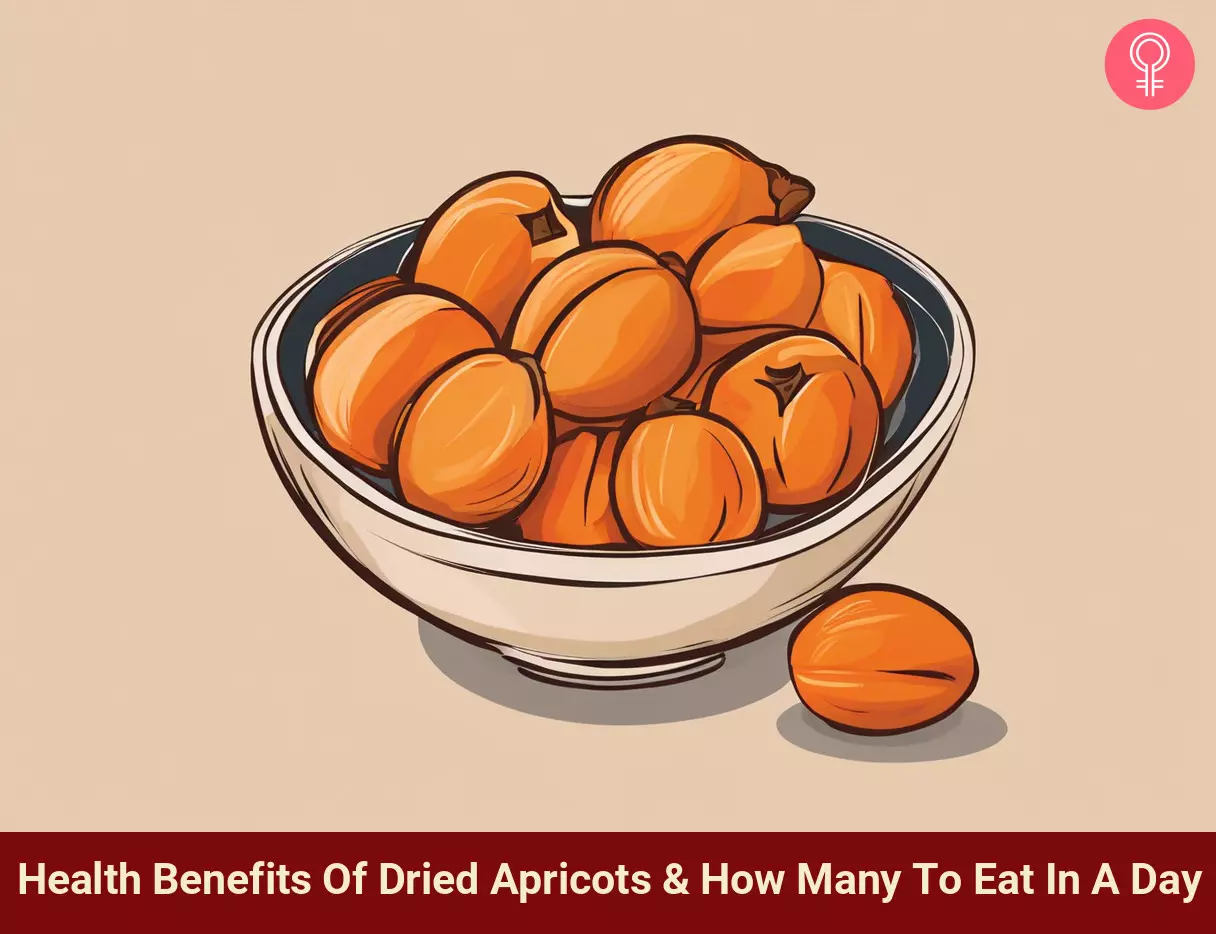
Image: Stable Diffusion/StyleCraze Design Team
References
Articles on StyleCraze are backed by verified information from peer-reviewed and academic research papers, reputed organizations, research institutions, and medical associations to ensure accuracy and relevance. Read our editorial policy to learn more.
- FOOD PRESERVATION: Drying Fruits, North Dakota State University.
https://www.ndsu.edu/agriculture/extension/publications/food-preservation-drying-fruits - Apricots, dried, sulfured, uncooked, U.S. Department of Agriculture, FoodData Central.
https://fdc.nal.usda.gov/fdc-app.html#/food-details/173941/nutrients - Phenolic compounds and vitamins in wild and cultivated apricot (Prunus armeniaca L.) fruits grown in irrigated and dry farming conditions, Biological Research, US National Library of Medicine, National Institutes of Health.
https://www.ncbi.nlm.nih.gov/pmc/articles/PMC4190386/ - Whole Fruits and Fruit Fiber Emerging Health Effects, Nutrients, US National Library of Medicine, National Institutes of Health.
https://www.ncbi.nlm.nih.gov/pmc/articles/PMC6315720/ - Eating for Two – A Healthy Pregnancy Starts with a Healthy Diet, The University of Arizona, College of Agriculture and Life Sciences.
https://extension.arizona.edu/sites/extension.arizona.edu/files/pubs/az1746-2017.pdf - Dried fruit and public health – what does the evidence tell us?, International Journal of Food Sciences and Nutrition.
https://www.tandfonline.com/doi/full/10.1080/09637486.2019.1568398 - Diagnosis and management of iron deficiency anemia in the 21st century, Therapeutic Advances in Gastroenterology, US National Library of Medicine, National Institutes of Health.
https://www.ncbi.nlm.nih.gov/pmc/articles/PMC3105608/ - Anemia, National Heart, Lung and Blood Institute.
https://www.nhlbi.nih.gov/health/anemia - Iron-deficiency anemia, U.S. Department of Health & Human Services.
https://www.womenshealth.gov/a-z-topics/iron-deficiency-anemia - Diets for Constipation, Pediatric Gastroenterology, Hepatology & Nutrition, US National Library of Medicine, National Institutes of Health.
https://www.ncbi.nlm.nih.gov/pmc/articles/PMC4291444/ - Concerned About Constipation?, National Institute on Aging.
https://www.nia.nih.gov/health/concerned-about-constipation - Postprandial Glycaemic Responses of Dried Fruit-Containing Meals in Healthy Adults: Results from a Randomised Trial, Nutrients, US National Library of Medicine, National Institutes of Health.
https://www.ncbi.nlm.nih.gov/pmc/articles/PMC6024783/ - Effect of dried fruit on postprandial glycemia: a randomized acute-feeding trial, Nutrition & Diabetes, US National Library of Medicine, National Institutes of Health.
https://www.ncbi.nlm.nih.gov/pmc/articles/PMC6288147/ - Fruits and vegetables that are sources for lutein and zeaxanthin: the macular pigment in human eye, British Journal of Ophthalmology.
https://www.ncbi.nlm.nih.gov/pmc/articles/PMC1722697/pdf/v082p00907.pdf - Microelements for bone boost: the last but not the least, Clinical Cases in Mineral and Bone Metabolism, US National Library of Medicine, National Institutes of Health.
https://www.ncbi.nlm.nih.gov/pmc/articles/PMC5318168/ - Skin Carotenoids in Public Health and Nutricosmetics: The Emerging Roles and Applications of the UV Radiation-Absorbing Colourless Carotenoids Phytoene and Phytofluene, Nutrients, US National Library of Medicine, National Institutes of Health.
https://www.ncbi.nlm.nih.gov/pmc/articles/PMC6566388/ - Back to Basics: All About MyPlate Food Groups
https://www.usda.gov/media/blog/2017/09/26/back-basics-all-about-myplate-food-groups - Mycotoxins in botanicals and dried fruits: a review, Food additives & contaminants, US National Library of Medicine, National Institutes of Health.
https://www.ncbi.nlm.nih.gov/pubmed/18286408 - Fungal Presence in Selected Tree Nuts and Dried Fruits, Microbiology Insights, US National Library of Medicine, National Institutes of Health.
https://www.ncbi.nlm.nih.gov/pubmed/26056470 - Sulphur dioxide in foods and beverages: its use as a preservative and its effect on asthma, British Journal of Diseases of the Chest, US National Library of Medicine, National Institutes of Health.
https://www.ncbi.nlm.nih.gov/pubmed/7426352 - Foods that May Cause Gas, International Foundation for Gastrointestinal Disorders, US National Library of Medicine, National Institutes of Health.
https://iffgd.org/symptoms-causes/intestinal-gas/foods-that-may-cause-gas.html
Read full bio of Staci Gulbin
- Nilofar Pendhari is a Certified Clinical Nutritionist with 9 years of experience in dietetics. She specializes in weight loss and management and charts out effective diet plans to help her clients meet their fitness and weight loss goals.
 Nilofar Pendhari is a Certified Clinical Nutritionist with 9 years of experience in dietetics. She specializes in weight loss and management and charts out effective diet plans to help her clients meet their fitness and weight loss goals.
Nilofar Pendhari is a Certified Clinical Nutritionist with 9 years of experience in dietetics. She specializes in weight loss and management and charts out effective diet plans to help her clients meet their fitness and weight loss goals.
Read full bio of Arshiya Syeda
Read full bio of Aparna Mallampalli








